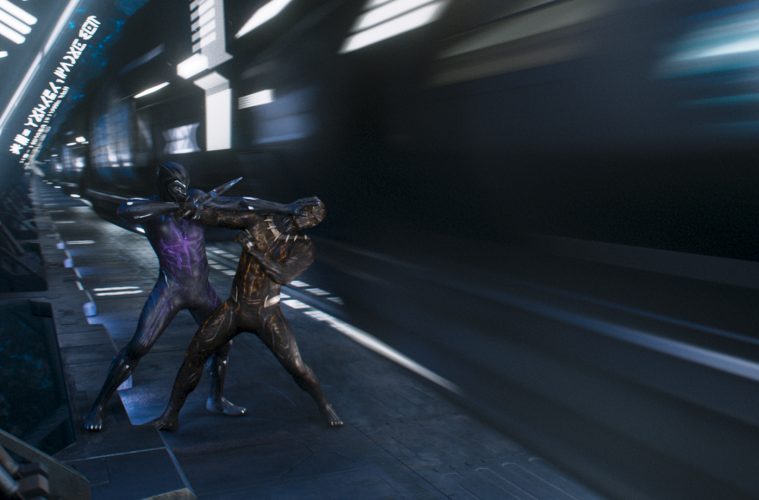Marvel Studios’ “Phase 3” has been all about the secrets and lies of the past inconveniently bubbling back up. It started with 2016’s Captain America: Civil War, which cleverly repurposed decades of comic book continuity to punctuate the head-butting between its two leads. By the end of the film’s third act, Tony Stark (Robert Downey, Jr.) discovered that the sub-sub-sub-plot of his parents’ death was linked to a secret Captain America (Chris Evans) was protecting. Later that same year in Doctor Strange, Chiwetel Ejiofor’s Mordo character was devastated to find out that his mentor, The Ancient One, had been using dark magic for immortality. 2017 brought a trifecta of disappointing personal revelations for the heroes of the Marvel Cinematic Universe. Peter Quill from Guardians of the Galaxy Vol. 2 discovered his dad was all-powerful and all-evil, Peter Parker stumbled upon the fact that his high school crush was the daughter of The Vulture in Spider-Man: Homecoming, and Thor discovered that his old man was more of colonizer than an “All-Father” in Thor: Ragnarok. This trend all but guaranteed that 2018’s Black Panther (in theaters Friday) would likewise shatter the reality of its monarch protagonist.
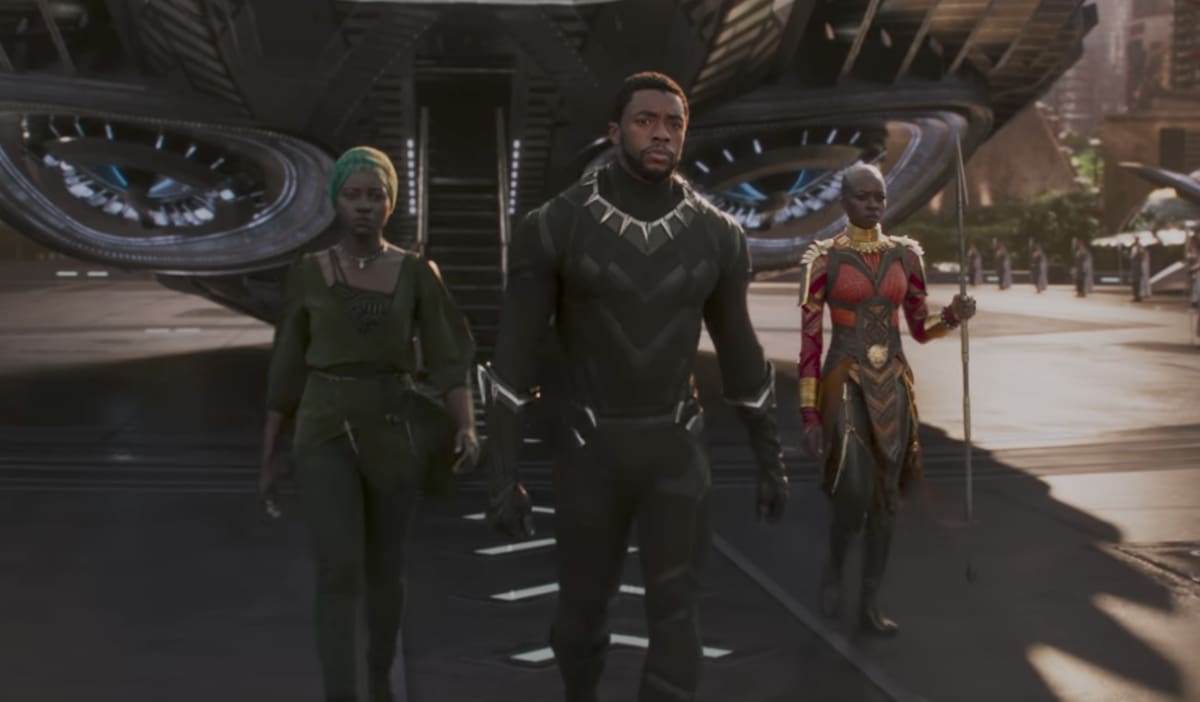
Played by Chadwick Boseman (who, it must be noted, no longer fakes an African accent through strained teeth), King T’Challa/Black Panther comes from a line of warriors sworn to protect the throne, even if that means shunning the outside world and hoarding the kingdom’s resources. Wakanda, T’Challa’s hidden domain, sits on a meteorite that houses an alien substance called “vibranium”. Within Wakanda, this has allowed his family to be rich and prosperous for centuries. Beyond Wakanda, the world considers the country to be totally Third World. This is a point of contention for a handful of people who know the truth and view Wakanda as isolationists. In that handful is Ulysses Klaue (Andy Serkis, who seems eager and excited to be acting without the shroud of digital effects) and Eric Killmonger (Michael B. Jordan, who showcases enough intensity to pop a vessel), two men with greed in their hearts but for different reasons. While Klaue seems to be only interested in how much vibranium he can sell to line his pockets, Killmonger has a connection to the ore that drives his pursuit. This spells trouble for the newly-minted King T’Challa, who is initially unaware of how heavy his crown is – er, vibranium-spiked necklace is.
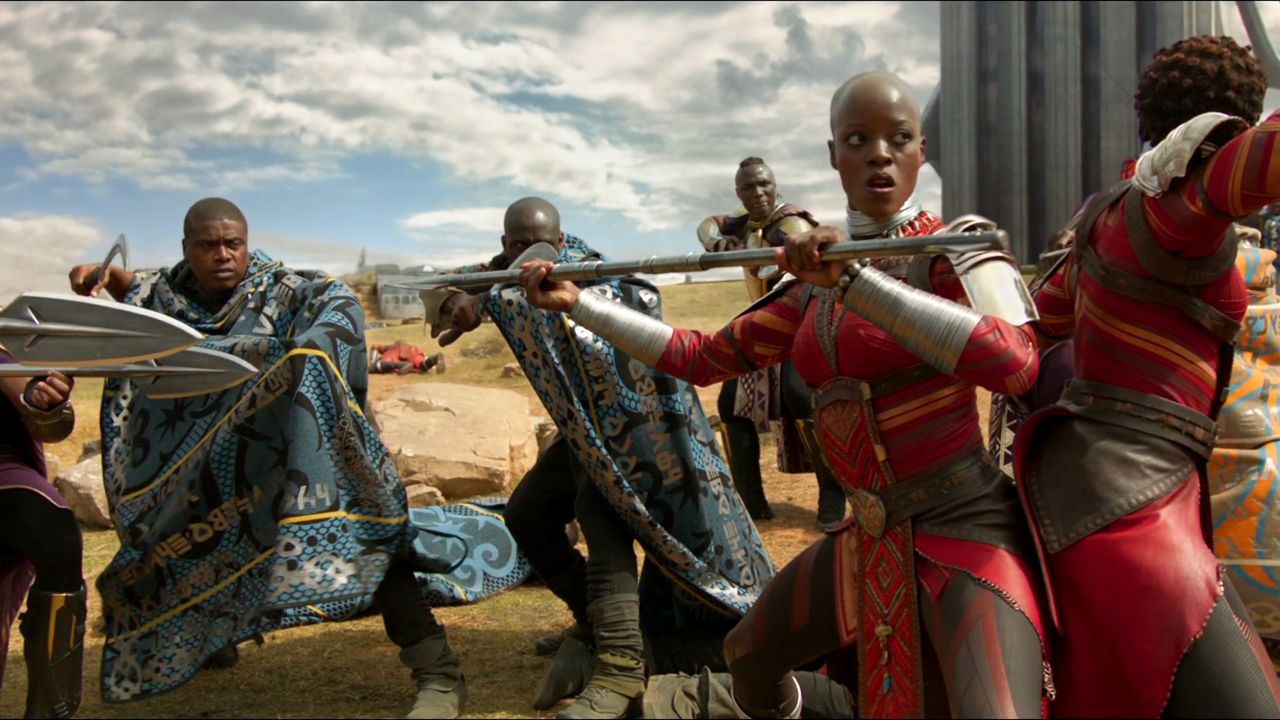
Similar to Ta-Nehisi Coates recent run as writer of the Black Panther comics, the Black Panther movie forces T’Challa to face the imperfections of what he perceived to be a utopia. In the film and comics, Wakanda is a rich, technologically advanced society untouched by foreign occupation. But their clandestine ways also put the rest of the world at a supreme disadvantage. This is the movie’s most gripping plot point – the idea that Wakanda has selfishly sectioned themselves off while African-Americans had to scrounge for equality in the United States. Does Wakanda, a culture that treats ancestry as religion, owe something to their displaced “ancestors”? It’s a question that the movie can’t possibly answer, but doesn’t shy away from either.
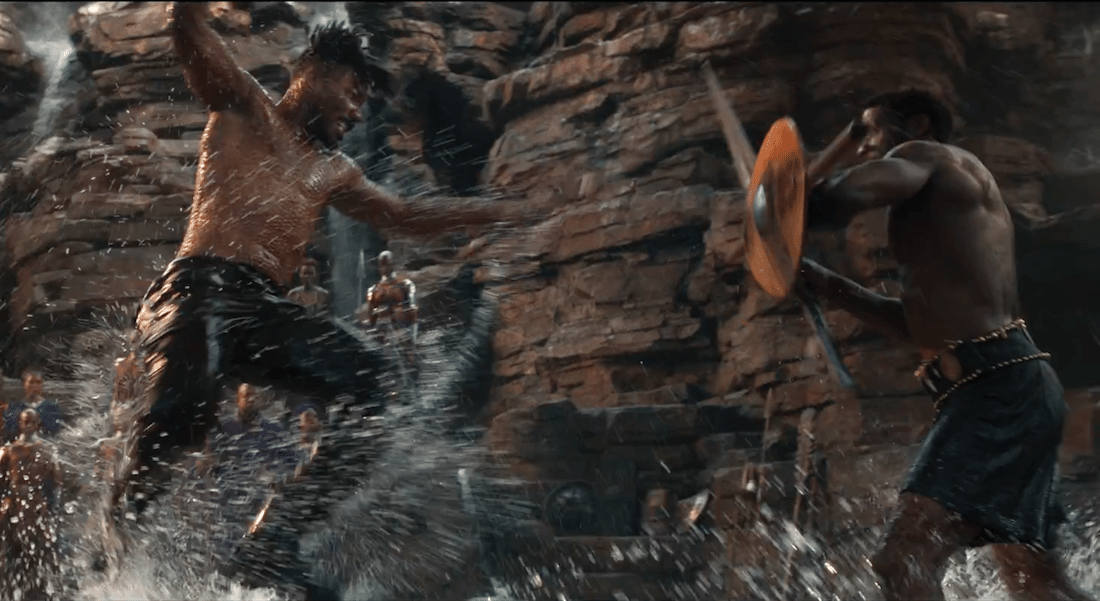
Overall, Black Panther’s provocative elements keep it from being just serviceable. Similar to the franchise’s better entries (Captain America: Winter Soldier, Captain America: Civil War, 2008’s Iron Man, and Guardians of the Galaxy Vol. 2, according to this reviewer), Marvel’s eighteenth film is most stirring when it pushes the universe and its audience outside of established boundaries. The problem with Black Panther, however, is that those moments are fleeting. Similar to lesser entries in the franchise, the movie feels a bit hurried — not in a production sense (seriously, I’ve never seen a film with this many Black faces have this much scale), but in the plot itself. It’s an editing choice that has plagued the studios more recent films like Doctor Strange and even last year’s undeniably amusing Thor: Ragnarok. Potentially juicy character moments get whittled down to appetizers. Angela Bassett, Lupita Nyong’o, Forest Whitaker, Daniel Kaluuya, Martin Freeman, Michael B. Jordan — each of these actors are introduced in compelling ways but end up abbreviated and somewhat inaccessible. (Hm, kind of how Wakanda is to the rest of the world…) Still, part of the addictive quality of the “MCU” is the promise to expand on these personalities down the line. These characters have withstood the test of time in print form and, for that reason, could easily become major players in subsequent Black Panther films or the universe at large.
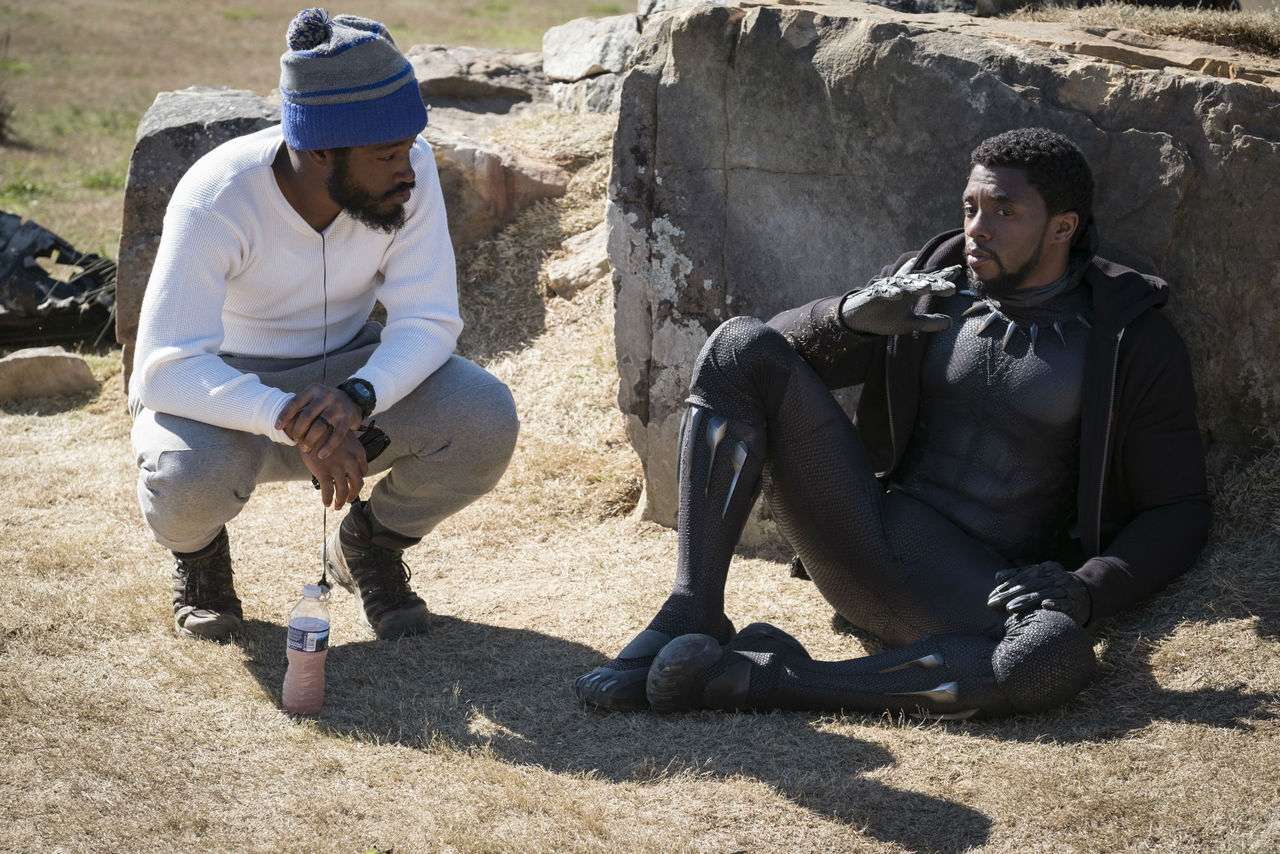
As for the action, I’m still trying to wrap my head around how director Ryan Coogler became so adept at action sequencing so quickly. His previous and second film, Creed, proved that the director was a true showman. With Black Panther — despite a climactic showdown that is a bit of a ferocious blur– Coogler is definitely here to stay in the genre. Similar to his 2013 Rocky spin-off, the director frequently invites the viewer to get in-between combatants with “oners” that move us through creatively coordinated conflicts. The mid-movie car chase, in particular, is completely disinterested in obeying the laws of physics and only concerned with making viewers lean forward in their seats. Coogler owns us in that moment, and his visual effects team are here to prove that Black Panther can function off the comic page and within the live action genre.
Marvel’s Black Panther is all about identity. Throughout, screenwriter Joe Robert Cole (American Crime Story) has characters define who T’Challa is for him or straight out ask “Who are you?” It’s brought up to Black Panther all the way up until the end credits (and a variation is tossed at him during one of the two end credit scenes). It’s a question that has not only plagued many Marvel writers during their stint on the comic series (the title of Reginald Hudlin’s first story arc is even called “Who Is The Black Panther?”) but seems to be brewing as we follow him into Avengers: Infinity War. Given Phase 3’s dramatic upheaval of long-established characters, you can’t help but anticipate what the Avengers will look like when they assemble this summer.

